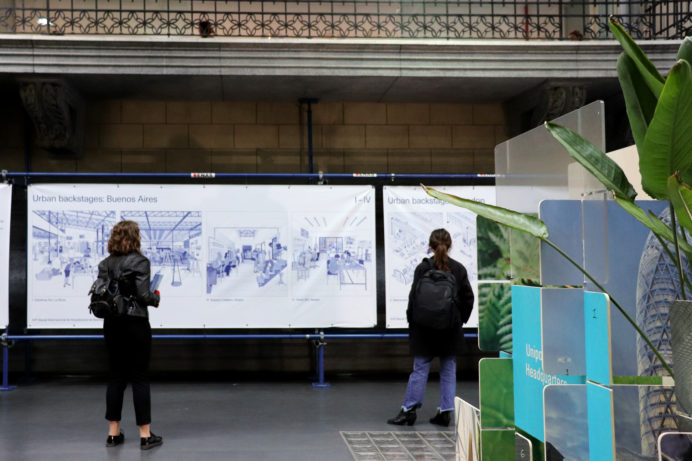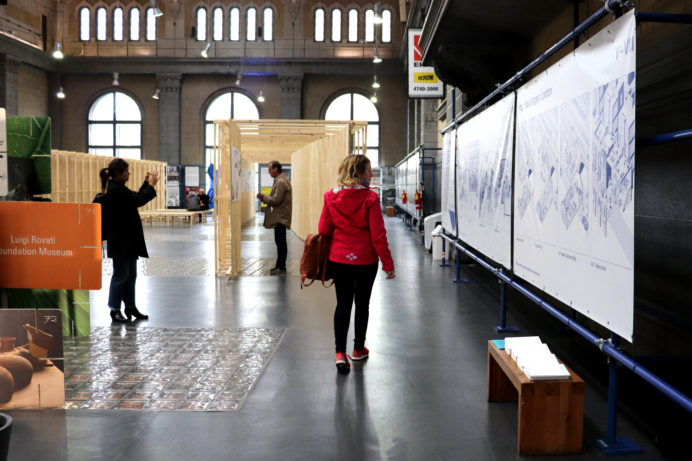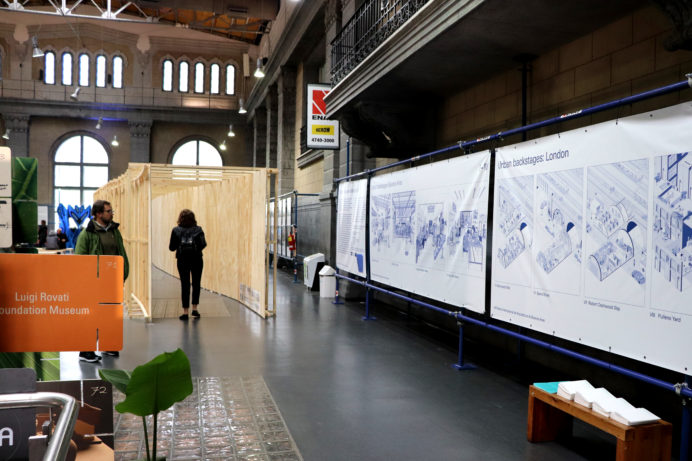Urban Backstages: Buenos Aires & London
Urban Backstages shares the first stages of our cultural infrastructure pilot study. The project reveals where and how art, craft and design happens behind the scenes in two very different cities (London and Buenos Aires) to discuss the implications of making the backstage in different political and urban environments. What can London learn from Buenos Aires, and vice versa? The exhibition included drawings of backstage spaces from both cities, as well as a film on Elephant and Castle, and publication produced on our Buenos Aires research.
In London we focused on the neighbourhood of Elephant and Castle. We interviewed artists from across all forms of practice, artisans, designers, tradespeople and small business owners, working alongside each other within the purpose built studios, live-work units, and converted former railway arches.
In Buenos Aires we chose to contrast the neighbourhoods of Abasto and La Boca – focusing on two theatres, and two artist studio complexes, representing very different approaches to the same kinds of infrastructure.
Whilst conducting interviews in vastly different contexts the essential questions we were asking remained the same. We wanted to find out what made them choose where they situated their practice and how they find working within their space. How does their physical environment affect what they do? How did they adapt it to their needs? How do they find the organisational and management structure? How do they engage with the surrounding area – their neighbours, peers, collaborators, suppliers, clients and those that run the cafes where they go for lunch?
Our project is not about mapping every studio, workshop, gallery, performance or rehearsal space in the city. We feel that the map is not the territory, so we’ve looked behind the scenes and underneath the surface to understand how, why, when and where creative work happens.
Urban Backstages is the result of research carried out by Theatrum Mundi as part of the Urban Backstages project, a two-year study of cultural infrastructure in six cities – London, Glasgow, Paris, Marseille, Buenos Aires and Tunis – initiated in partnership with the Ax:son Johnson Foundation, Stockholm, Sweden.


